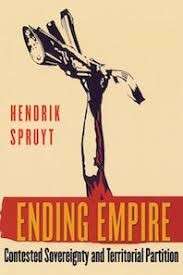
Ending Empire: Contested Sovereignty and Territorial Partition - Hendrik, Spruyt
Check my rate
| Main centres: | 1-3 business days |
| Regional areas: | 3-4 business days |
| Remote areas: | 3-5 business days |

| Main centres: | 1-3 business days |
| Regional areas: | 3-4 business days |
| Remote areas: | 3-5 business days |
At the dawn of the twentieth century, imperial powers controlled most of the globe. Within a few decades after World War II, many of the great empires had dissolved, and more recently, multinational polities have similarly disbanded. This process of reallocating patterns of authority, from internal hierarchy to inter-state relations, proved far more contentious in some cases than in others. While some governments exited the colonial era without becoming embroiled in lengthy conflicts, others embarked on courses that drained their economies, compelled huge sacrifices, and caused domestic upheaval and revolution. What explains these variations in territorial policy? More specifically, why do some governments have greater latitude to alter existing territorial arrangements whereas others are constrained in their room for manoeuvre? In Ending Empire, Hendrik Spruyt argues that the answer lies in the domestic institutional structures of the central governments. Fragmented polities provide more opportunities for hard-liners to veto concessions to nationalist and secessionist demands, thus making violent conflict more likely. Spruyt examines these dynamics in the democratic colonial empires of Britain, France, and the Netherlands. He then turns to the authoritarian Portuguese empire and the break-up of the Soviet Union. Finally, the author submits that this theory, which speaks to the political dynamics of partition, can be applied to other contested territories, including those at the heart of the Arab-Israeli conflict.
Softcover. English. Cornell University Press. 2005. ISBN: 9780801489723. 305 pp. Good. Book No: 2506359